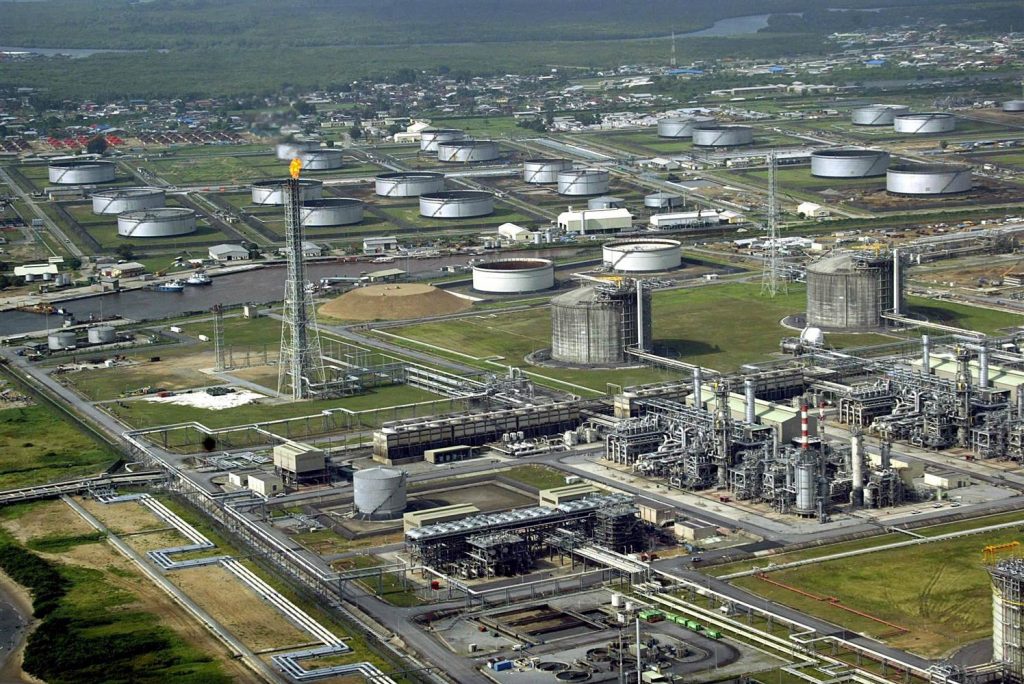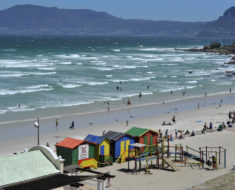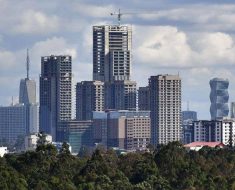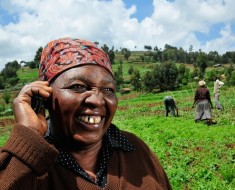Nigeria may have reclaimed its position as Africa’s top oil producer beating Angola. Angola had led the African oil producing countries with its 1.7 million barrels of crude oil a day, well above Nigeria’s 1.5 million barrels per day, in September 2016, for seven straight months.
According to the December 2016 Monthly oil Market report (MOMR) of the OPEC, crude oil production from Nigeria went a notch above that of Angola even before the start of 2017 as per the planned production cut agreed by OPEC and non-OPEC producers.
Angola would be expected to cut about 78,000 barrels per day (bd) of its production in the agreement which was sealed in late 2016.
But secondary sources in the MOMR indicated that in November last year, Nigeria and Angola produced 1.692 million barrels (mb) of oil apiece. Information from primary sources in the MOMR stated that Nigeria produced 1.782mb of oil as against Angola’s 1.688mb to show its takeover of Angola by about 94,000bd.
According to secondary sources, OPEC crude oil production in November increased by 151tb/d compared to the previous month to average 33.87mb/d. Crude oil output increased the most in Angola, Nigeria and Libya, while production in Kuwait and Saudi Arabia showed the largest decline.
“A new OPEC-14 production target of 32.5mb/d as per 1 January 2017 represents a reduction of around 1.2mb/d from October production levels,” said OPEC’s December MOMR.
Earlier in the year when Nigeria lost its position as Africa’s largest producer, its output fell to about 1.677mb, as against Angola’s 1.782mb then.
The development was made possible by repeated attacks on Nigerian oil infrastructure by militants in the Niger Delta.
1 barrel of crude oil is traded for an average 50 USD during 2017 meaning that the Nigerian Oil Industry is making as much as 89,000,000 USD per day which may reach up to 32 billion USD in a year which makes Nigeria the largest economy in Africa, Although Nigeria is an oil producing country the oil only contributes 10% of the total GDP. Crude oil exports as of 2016 earned the country $74B, petroleum gas earned the country $13B, refined petro $4.23B, pyrophoric Alloys $1.9 B among others. The economy of Nigeria also flourishes under aircraft parts exports, vessels, cocoa, tobacco, processed food and spirits and vinegar exports.
With an estimated population of 177 million, Nigeria is the continent’s most populous country. It currently has the seventh largest population in the world and the U.N. estimates those numbers will balloon to 258 million by 2050. It is made up of over 250 ethnic groups, with the Hausa and Fulani groups being the most dominant, followed by Yoruba and Igbo.
‘World capital of oil pollution’
The Niger Delta has taken a beating from the decades of oil exploration and production. Environmentalists call the Delta the “world capital of oil pollution” with some 300 spills each year, according to the BBC. Locals blame the oil industry for destroying their fishing livelihood, as well as clean water sources. Environmentalists say international oil companies take advantage of the lack of laws and government regulation in Nigeria, but the companies say sabotage is also to blame for the pollution.
2. Angola
Angola produced nearly 1.8 million barrels of oil per day in 2014, continuing a period of fluctuating production that began in 2009. Prior to 2009, the country achieved seven consecutive years of production gains in the oil sector, raising the average output from 742,000 barrels per day to nearly 2 million barrels per day. These gains were primarily the result of new production from deepwater oilfields offshore. Most oil production in Angola takes place offshore, as violence and conflict have limited exploration and production activities onshore.
The Sociedade Nacional de Combustiveis de Angola, also known as Sonangol, is Angola’s state-owned oil company. It oversees virtually all oil and gas development in the country. Most exploration and production operations in Angola are headed by international oil companies operating in joint ventures or under production-sharing agreements with Sonangol. Some of the biggest oil companies in Angola include Chevron Corporation, Exxon Mobil Corporation, Total S.A., Statoil ASA, Eni S.p.A. and China National Offshore Oil Corporation, also known as CNOOC.
This is the third time Angola will floor Nigeria as the continent’s largest producer, following the attacks on oil installations in Niger Delta region in 2016.
OPEC’s monthly oil market report (MOMR) released yesterday revealed that Angola’s production was now at 1.651 million barrels per day, according to secondary sources.According to the report, Nigeria, on the other hand, had its production levels between 1.576 million barrels and 1.604 million barrels per day, according to secondary sources and direct communications, respectively.
Using both sources, Angola stands as Africa’s largest oil producer, after losing that spot to Nigeria in December 2016. OPEC also revealed that Nigeria, Saudi Arabia and the United Arab Emirates recorded massive improvements in their economic outlook. “In Nigeria, operating conditions in the country’s private sector improved in January for the first time in a year, as suggested by the Stanbic IBTC Bank Nigeria PMI,” OPEC said.
see also Top 10 Richest African Countries in 2017
3. Algeria
Algeria produced just over 1.7 million barrels of oil per day in 2014 to maintain its position among the top tier of African oil producers. However, 2014 marks the second consecutive year of falling production in the country, amounting to a total of more than 150,000 barrels per day of lost production. According to the EIA, these declines are primarily a result of delayed investments in new infrastructure and new production projects. In the nine years prior to 2013, Algerian oil production was fairly consistent, averaging around 1.9 million barrels per day. In addition to its substantial oil output, Algeria also ranks as the top natural gas producer in Africa.
Entreprise Nationale Sonatrach is Algeria’s state-owned oil and gas company. Under the Hydrocarbon Act of 2005 and its subsequent amendments, Sonatrach must retain a minimum of 51% equity in all oil and gas projects in the country. As of 2014, Sonatrach controls approximately 80% of oil and gas production in the country. International oil companies make up the remaining 20%, albeit through joint ventures and similar arrangements with Sonatrach. International oil majors involved in Algerian oil production include BP plc, Repsol S.A., Total S.A., Statoil ASA, Eni S.p.A. and Anadarko Petroleum Corporation.
4. Egypt
Egypt produced 668,000 barrels of oil per day in 2014, the fourth consecutive year of falling production. Declines totaled about 9.3% during that period, which is especially problematic given the 3% annual growth in oil consumption in the country during the last decade. According to the EIA, the decline in Egyptian production is mostly attributable to maturing oil fields. Exploration activities continue in the country in the hopes of boosting domestic production to keep up with ever-increasing domestic demand.
Egypt’s state-owned oil company, Egyptian General Petroleum Corporation (EGPC), controls all oil production in the country. EGPC partners with a number of international oil companies in offshore and onshore production operations in Egypt. Eni S.p.A. and BP plc are major shareholders in offshore Egyptian production assets. The American oil company Apache Corporation is a partner in production assets in Egypt’s Western Desert.
5. Libya
Libya produced about 516,000 barrels of oil per day in 2014, a decrease of more than 47% from the previous year. This decline was primarily a result of national protests that broke out in 2013. The country saw even more severe disruptions in oil supply during the Libyan civil war in 2011, when production declined from about 1.8 million barrels per day in 2010 to a daily average of 500,000 barrels the next year. Prior to 2011, Libya maintained oil production above 1.7 million barrels per day for six consecutive years. The country contains proven reserves of oil amounting to about 48 billion barrels, which is the most in Africa.
The state-owned National Oil Corporation has controlled the oil and gas sector in Libya for many years. However, the civil unrest in the country has precipitated a power struggle that has yet to be concluded as of September 2015. International oil companies were active in Libyan oil production prior to this period, but the future will remain cloudy until the instability is resolved. International oil companies with operations in Libya include ConocoPhillips Co., Repsol S.A., Total S.A., Eni S.p.A. and Occidental Petroleum Corporation.
see also Top 10 Poorest Countries in Africa
6. Equatorial Guinea – 269,000 Barrels Per Day
With a daily production rate of 269,000 barrels, Equatorial Guinea is ranked sixth among the highest oil producing countries in Africa and 34th in the world. Equatorial Guinea’s 1.1 billion barrels of proven crude oil reserves is the eighth-largest in Sub-Saharan Africa
7. Sudan & South Sudan – 262,000 Barrels Per Day
Sudan and South Sudan are the 7th largest oil producing African Countries and the 35th largest oil producers in the world. Most of the oil production capacity is now in South Sudan after it gained independence from Sudan in 2011, but it has to use Sudan’s export pipelines and port which makes the two countries dependent. Unified Sudan was the second-largest non-OPEC oil producer in Africa before the split in 2011. The split has led to a decline in oil production for both countries, they are now ranked as the fourth-largest non-OPEC African oil producer.
8. Congo – 259,000 Barrels Per Day
The Republic of Congo is the 8th highest oil producing country in Africa and the 36th largest oil producing country in the World. Oil production accounts for about 85% of Republic of Congo’s export revenues and almost 80% of the government’s total revenue. Congo’s oil daily production is around 259,000 barrels, a figure expected to decline as a result of natural declines at mature fields.
see also Africa’s Top 10 Richest People Of 2015
9. Gabon – 240,000 Barrels Per Day
Gabon is the 9th largest oil producer in Africa and the 37th in the world with a daily production capacity of 240,000 barrels. Gabon’s economy is reliant on its oil production, Oil revenue accounts for 56% of total government revenue.
10. South Africa – 160,000 Barrels Per Day
South Africa is the10th largest oil producer in Africa and the 41st highest oil producing country in the world. It has a daily output of around 169,000 barrels. The large economy and the well-developed infrastructure of South Africa are the two main strengths of its oil industry, it has the second-largest crude oil refining capacity in Africa.













was trying to know the top ten Countries producing oil in Africa and I found no result.